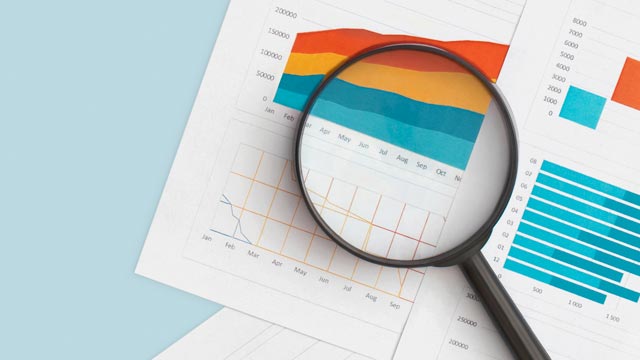Health Literacy: Equip Members to Understand and Navigate Their Healthcare
February 13, 2024

Installment 2 of 6: “Empowering Employers in 2024: Strategies for Effective Employee Health Management and Financial Optimization”
Empowering Employers in 2024 Series
Low health literacy increases mortality risk from various health conditions.1
Our nation’s healthcare system is extraordinarily complex and difficult for patients to navigate. The ability to “access health related information and apply this information to health-related behaviors” is called “health literacy” and it factors significantly in outcomes and our nation’s national health expenditure (NHE).2 It is estimated that 88% of adults in the U.S. have poor health literacy.3 More than one in four individuals with low health literacy also have a serious medical condition.4
INDIVIDUALS WITH LOW HEALTH LITERACY5
Are at greater risk of obesity, poor nutrition, and lack of frequent exercise
Have a 50% higher chance of hospitalization
Incur healthcare costs four times higher than individuals with high health literacy
Have a higher probability of visiting an emergency department within 90 days of a hospital discharge
Are more likely to suffer multiple chronic conditions like diabetes and hypertension
Are less likely to be compliant with treatment plans or adhere to medication regimen
Health Literacy’s Cost Connection

Improving health literacy can decrease hospitalizations, reduce ER visits, decrease overall costs, lower mortality rates, and improve the use of preventative services.8,9
According to the CMS, our country’s national health expenditure rate grew 4.1% to $4.5 trillion in 2022, accounting for 17.3% of our Gross Domestic Product (GDP).6 The NHE is expected to reach just short of 20% by 2031. Of all healthcare spending in the U.S., the majority is driven by just a tiny portion of the population.
FINANCIAL IMPACT OF POOR HEALTH LITERACY ON EMPLOYERS
$3.4B is the additional cost employers and insurers incur due to low health literacy.7
Designing an Effective Program to Improve Health Literacy

Conifer PHNs get to know the member on a personal level, which helps improve trust, increase accountability, and care plan completion.5
The challenge for employer benefit teams is how to implement programs that help employees become more health literate so they are able to understand their health conditions and leverage services more appropriately and cost-effectively. Personal Health Nurses (PHNs) from Conifer Health can help. Conifer PHNs are registered nurses who work with individuals to help members better understand their health challenges and help them navigate the healthcare system and their benefits more effectively.
How conifer personal health nurses help improve health literacy
Helping individuals understand their health diagnoses and unique health conditions
Importance of completing the actions.
Assisting individuals to find medications that are covered in their plan.
Connecting individuals with support groups and other community resources to address social determinants of health.
Facilitating appointments and referrals for more proactive, timely care.
Success Story

A 62-year-old member with a history of type II diabetes and hyperlipidemia needed assistance managing her medical plan, finances, and mental health. Due to financial constraints, she was running out of medications. She also had difficulties buying food and often went without.
How Conifer Helped
- A Conifer PHN contacted the member’s primary care provider (PCP) to explain the member’s situation. The PCP agreed to allow the member to pay her co-pays over time to reduce that financial barrier.
- The PHN was able to get samples of the member’s medication for her so she wouldn’t miss doses and could stay adherent.
- The PHN researched area food pantries and provided resources to the members for food assistance.
- The PHN coordinated with behavioral health covered in her insurance plan to get the member mental health support.
Member Results
- The member is now taking her medications as prescribed and her blook sugar has improved significantly.
- The member reported that she was able to visit the food pantry and ensure she had adequate nutrition.
- The PHN continues to work with the member on diabetes management and encourages the member on actions to lower her A1c.
- The PHN checks in on the member’s mental health including access to resources.
Increasing Health Literacy Through PHNs

Improving health literacy of members can improve outcomes and significantly decrease employer costs. Leveraging personal health nurses is a great place to begin. Partnering with Conifer Health can help. Conifer’s personal health nurses help at-risk members better understand their unique health conditions while also helping them better navigate our complex healthcare system. Partner with Conifer Health and let’s tackle health literacy once and for all!
References
- https://www.accenture.com/us-en/insights/health/hidden-cost-healthcare-system-complexity
- https://www.cms.gov/data-research/statistics-trends-and-reports/national-health-expenditure-data/nhe-fact-sheet
- https://icjs.us/health-literacy-in-the-united-states
- https://www.reliasmedia.com/articles/147129-better-patient-education-can-lead-to-lower-medical-costs
- https://www.pfizer.com/health/literacy/healthcare-professionals/patients-health
Category:
Topics:




